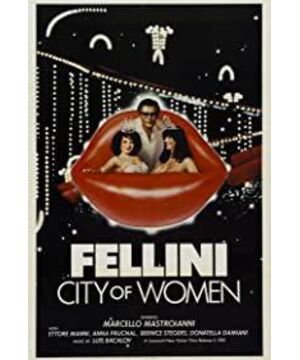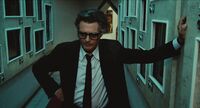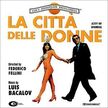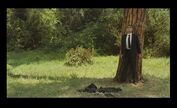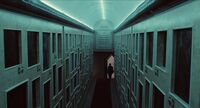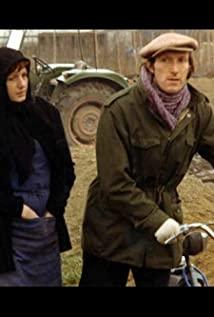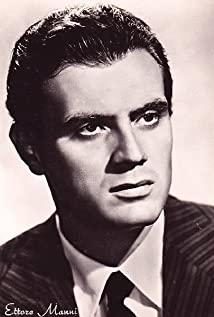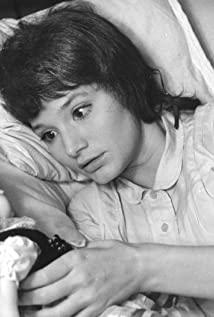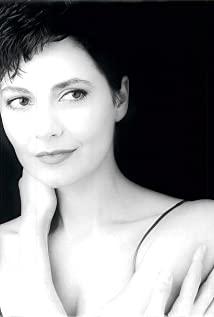This article is taken from "Fellini: The Sweet Life". The original translation is very strong, but there are still many wonderful passages. For example, Fellini said that Rota felt a sense of disappearance when he died, and he also read a similar feeling in the passage of Prince Andrew's death in "War and Peace"; when it came to their legendary acquaintance, he also read Gossip says that the two of them didn't know each other on the bus. When it comes to the dual characteristics of Fellini's music, the joyful atmosphere and the sad and melancholy color, it is true to listen to the original sound of Godfather or Leopard. Sadness or gorgeousness are completely different. Pure dripping; there are also close collaborations similar to Leone and Morricone, and it is unclear whether the video lines come from the music or the music comes from them.
The original text is as follows, the emphasis has been drawn.
In April 1979, Fellini was preparing for the film "Women's City". He and Rota had an exchange of composition for the film on April 9, but on the afternoon of April 10, there was a bad news that the musician died of a heart attack. Consumption, this was a merciless blow to Fellini, he suddenly felt that he had lost an irreplaceable friend and collaborator. Three days after his friend's death, he wrote in a tribute to his friend in the Courier newspaper: "For the first time I had a wonderful feeling that he did not die, but just disappeared, a passing of life, which It's a wonderful, indescribable sense of passing, which I have often felt when Rota was alive." Fellini believed that Rota was the only one who could understand him, especially the soul of his films. When Fellini died in 1993, his wife Massina invited trumpeter Mauro More to play Rota's "Angel Impromptu" at Fellini's funeral. Masina knew that these were two souls with the same soul.
Nino Rota (1911-1979) was born into a musical family, started composing at the age of 8 and composed the piano piece "San Giovanni Battista" at the age of 11, after its premiere in Milan , and performed in France. Studied at the Verdi Conservatory in Milan. Under the recommendation of the famous Italian conductor Arturo Toscanini (1867-1957), he went to the New York Conservatory of Music for further studies in 1930 and returned to China two years later. After graduating from the Faculty of Literature at the University of Milan, he taught at the Tarento Conservatory, and in 1939 at the Bari Conservatory, where he was the conductor of the school's orchestra from 1950 to 1978.
Rota's works are abundant in quantity and of high quality: his works include nearly 150 operas, musical stage works, religious sacred music, chamber music, choral music, symphony and so on. The bond between Rota and the film has left a wonderful legend in the history of film. His compositions for many famous directors have become classic melodies in the history of cinema: such as the waltz in Visconti's Leopard, the folk music in Castellani's "Under the Roman Sun", Zeffirelli's The popular and widely sung love theme song in "Romeo and Juliet". In addition, he has collaborated with directors such as Kim Vidor (for his "War and Peace"), Sergey Bandarchuk, Edward Demetrik, Coppola and other directors, and because of the latter's work "The Godfather 2" won an Oscar. While listening to Rota's screen music, we were pleasantly surprised by how closely there is a connection between the oldest of these two art forms and the most modern of film - when we talk about "The Leopard", "The Great Road" , "Sweet Life", "8 and a half", "Godfather" and these great films, we will not forget that it is the music that adds brilliance to these works , the fusion of film images and music, and the joint empowerment of images and music. It is precisely because Rota is good at blending elegant classical music with popular folk melodies, so his beautiful melodies are widely recited through movies.
Undoubtedly, among the film directors, the cooperation between Fellini and Rota is more representative in film history.
In Fellini, Tullio Gates describes at length Fellini and Rota's legendary friendship:
“When Fellini was filming The White Chief, an event that had a major impact on his life and art was his collaboration with the musician Rota. It is said that Fellini and Rota met with a story: it was during the war. Just at the end. One day, Fellini came out of the Lux Film Company set up in the Po River Road, and happened to meet Master Rota who was waiting for the bus at the bus stop, so Fellini asked him how many buses he was waiting for. Rota The number of the bus he was waiting for was given, but the bus didn't pass there, and the bus miraculously arrived just as Fellini explained to Rota. It's a Fellini-esque episode, typical , like a dream. This informative anecdote encapsulates the relationship between the director and the musician, a quarter-century of friendship and collaboration: their rapport is something magical The phenomenon of empathy is full of romance. Their cooperation has been heart-to-heart from the very beginning, and there is no need for excessive language exchanges and discussions, let alone quarrels. Musician Carlo Savina - a long-term "music group" The third member and coordinator, in his memory, Fellini and Rota have never had a big creative disagreement. The reason for such a tacit understanding, according to Fellini, is because Rota is a mild-mannered, angel-like person who plays down the needs of the world and is very inspired in creation. No doubt, from the very beginning, Rota intuitively understood the poetry of Fellini's music and knew that he needed music with duality Function: to express both a joyful atmosphere and a sad and melancholy color. As early as in the music title of "The White Chief" (1951), the musicians used the jumping horn used by the circus. The themes appear alternately; this "mix and match" makes the music so unique that it can even be said to be the prototype of Fellini's screen music, which later appears throughout Fellini's films until "The Band Rehearsal" (1978). ), and some critics said that it is not only in "Band Rehearsal", but also has this "mix-and-match" style in subsequent films. Rota seems to be able to read his friend's heart, and use notes to convey the depth of his friend's heart. He interprets his feelings, alternately appearing in the form of joy and melancholy, expressing his unpredictable heart vividly. However, when composing the music, Rota did not stand at the height of his professionalism, and created with cumbersome rules and regulations. , and did not add 'mine' or 'your' personal sentiments, because doing that would normally destroy the artistic effect of the collaboration."
" Rota is naturally musically gifted and has an extraordinary talent for creating emotional melodic structures. Although Rota's music has a distinct Rosella Stravinsky overtone, he has a multifaceted talent. , he is completely intoxicated in music, he likes both elegant music and folk music, both the creation of others and his own works. Sometimes he creates as much as he likes, imitating, plagiarizing, interpreting, looting his own works and even The music of the entire history of music, he would be elated and carried away at this time, but in re-creating the spoils of the robbery, what came out of his fingers was a work that was completely personal and distinctive. Rota is like Rossini . (Rossini, 1792-1868, Italian composer) Like other great creators, he often "transplants" music, for example, transplanting an entire piece of music from a film into a piece of music he composed, or The music from one film was transplanted into another film. For example, the song "Flying in the Night Sky" from "Free Rome" was transplanted to "The Swinger"; the theme music of "Liar" was transplanted to "Lucky" "Girl"; then, the melody of "Lucky Girl" became the theme song of "The Godfather"."
"In fact, since Fellini is not keen on music and his expertise in this area is limited, he does not make it difficult for musicians. And Rotta is also happy to use what Fellini knew and loved as a teenager. Folk music, the melody, rhythm, and character of this kind of music are very distinct, and it is surprising that Fellini does not have the obsession and fanaticism of the Romanians (Fellini was born in Rome, Italy). Rimini in the Nia district). In terms of music creation, Rota accepted all the demands of Fellini without reservation, and from time to time suggested to him that those used and well-known repertoires should be determined, It was used as a repertoire of the film to "play" again. But sometimes they found that it couldn't be done because of copyright issues, so the two friends sat in front of the piano with a smile, side by side, making fun of each other while creating. So, Together they witnessed a miracle: a theme melody that was originally used in a certain movie, after Rota's reinterpretation, came out of his fingers another brand new movie theme music. And this creative process is very short , dubbed "shamely short" by Rota himself.
"Many researchers have written about the mystery of how the two of them worked so well together, and why their ideas have penetrated into each other so that they are completely stylistically and poetically integrated. Music director Glaugo Pellegri Ni described their relationship this way: "Their cooperation has left people with a valuable experience: there is a delicate and harmonious relationship between the two, they are like two streams flowing through the same riverbed, merging into a A river, replenishing water and nourishing each other, pushes forward together until it flows into the sea. "Here, one may add the opinion of the critic Lorenzo Aruga: "Many people think that Rota's musical atmosphere is Fellini's... Perhaps the same can be said of Fellini's Movies are Rota-style: it means that they have something in common: they don't follow traditional cultural concepts and thinking patterns, they look at reality from an alternative point of view, and then they naturally take the ideas, questions, and concepts that people are accustomed to. , debates, contradictions, etc., are revealed, inspiring us to think about them with intuition and memory. "
"Since 'The White Chief', Fellini and Rota have established this tacit coexistence for the film, the fruit of their collaboration that preserves their artistic qualities while making their common Lighting the flashes makes the film more popular. After "The Great Road" won the Oscar, Rota's music has also become a household name. In the United States, its theme song was interpreted as a song "The Shining Star in Your Eyes" In 1966, La Scala in Milan adapted "Avenue" into a ballet. It is worth mentioning here that in addition to cooperating with Fellini, Rota also cooperated with many other film directors. In cooperation with Fellini In 1952, he also composed music for eight other films. In general, Fellini was jealous of his collaborators working for others, but he did not object to Rota working with others, and he was even happy to Participating in the premieres of some of this friend's music, which he doesn't normally like and stage performances."
View more about City of Women reviews


